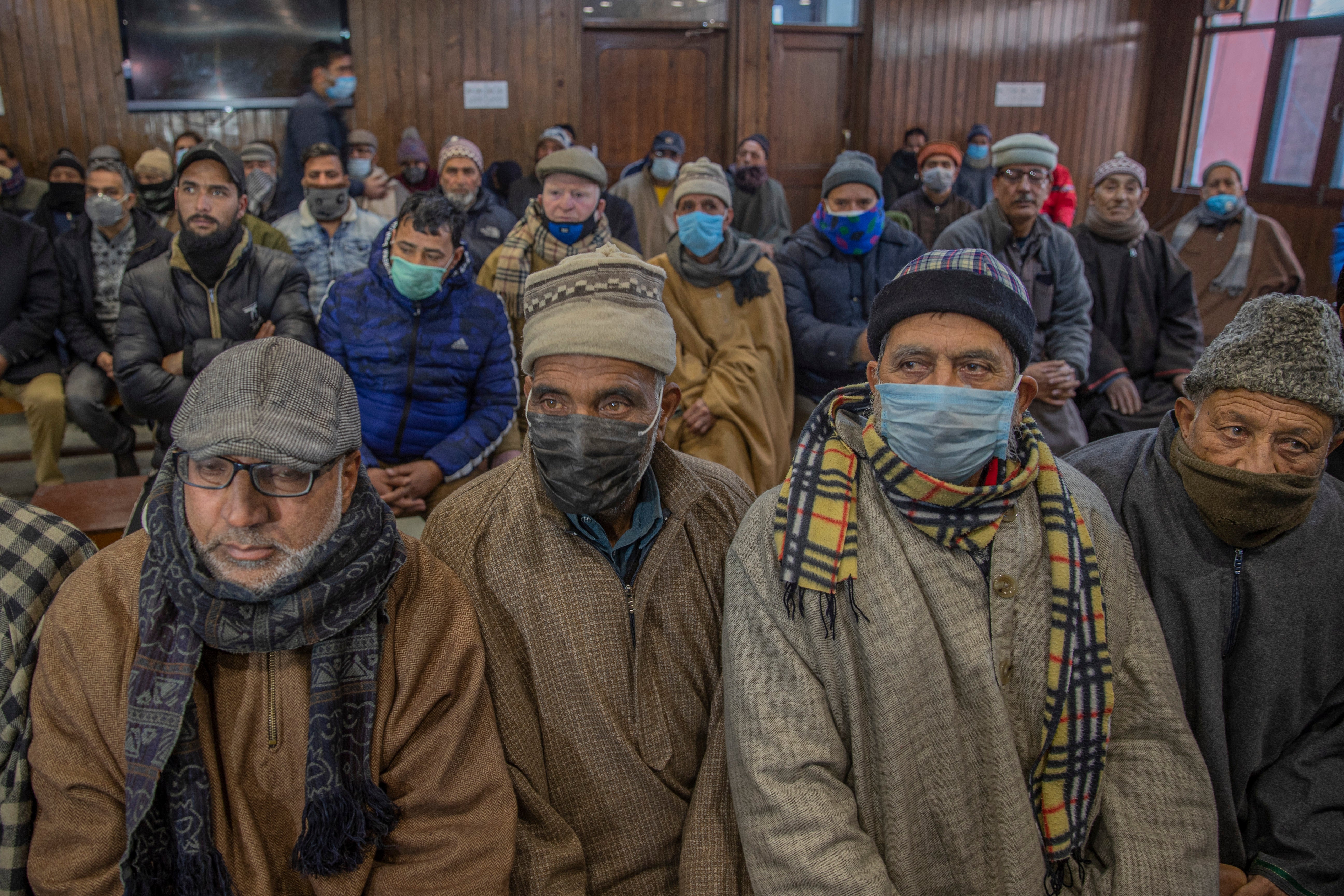Kashmir parties opposed to Modi win seats in local polls
An alliance of political parties opposed to New Delhi’s policies in Kashmir has won a majority of seats in local elections, the first since New Delhi revoked the disputed region’s semiautonomous status and took direct control last year

Your support helps us to tell the story
From reproductive rights to climate change to Big Tech, The Independent is on the ground when the story is developing. Whether it's investigating the financials of Elon Musk's pro-Trump PAC or producing our latest documentary, 'The A Word', which shines a light on the American women fighting for reproductive rights, we know how important it is to parse out the facts from the messaging.
At such a critical moment in US history, we need reporters on the ground. Your donation allows us to keep sending journalists to speak to both sides of the story.
The Independent is trusted by Americans across the entire political spectrum. And unlike many other quality news outlets, we choose not to lock Americans out of our reporting and analysis with paywalls. We believe quality journalism should be available to everyone, paid for by those who can afford it.
Your support makes all the difference.An alliance of political parties opposed to India's policies in Kashmir has won a majority of seats in local elections, the first since New Delhi revoked the disputed region’s semiautonomous status and took direct control last year.
The alliance, which is pro-India but favors self-governance in Kashmir, won 112 out of a total of 280 seats in District Development Council elections, which were held in a staggered eight-phase process from Nov. 28 through Dec. 19.
Prime Minister Narendra Modi’s Hindu nationalist Bharatiya Janata Party, or BJP, won 74 seats. Independent candidates won 49 seats.
The BJP has a very small base in the Kashmir Valley, the heart of the decades-old anti-India insurgency where it got only three seats. Most of the other BJP seats come from four Hindu-majority districts in the Jammu area where it has significant support.
Over 51% of nearly 6 million eligible voters across the region’s 20 districts cast their ballots, the Election Commission said, calling the vote “the biggest festival of democracy.” Results for a few remaining seats will be announced later.
The election is part of a process in which residents directly elect their village representatives, who then vote to form development councils for clusters of villages. Members for the larger District Development Councils are also directly elected but they have no legislative powers and are only responsible for economic development and public welfare.
India has repeatedly called such polls a vital grassroots exercise to boost development and address civic issues and a way to uproot corruption. Indian authorities have kept a tight grip on Kashmir since revoking its autonomy in August last year and have arrested most separatist leaders, who in the past have called for a boycott of elections.
New Delhi has annulled Kashmir's constitution, split the area into two federal territories — Ladakh and Jammu-Kashmir — and removed inherited protections on land and jobs.
Modi’s party flew some of its top national leaders to the troubled region and organized dozens of rallies to bolster its campaigning and broaden its base mainly in the Kashmir Valley. The BJP declared the results as a referendum in favor of its August 2019 changes.
“I feel this is the new beginning of Indian politics,” said Shahnawaz Hussain, the BJP national spokesman.
Many of the BJP opponents in the alliance accused the government of preventing them from campaigning and detaining some of them. Officials have denied the allegations.
One of those arrested before the vote for alleged links with Kashmir’s main rebel group was alliance candidate Waheed Ur Rehman Parra. He defeated his BJP rival. Parra’s party and family have denied police allegations.
Omar Abdullah, Kashmir’s former top elected official and an alliance leader, told reporters that the alliance was “born in adversity” and accused Modi’s party of throwing “the entire weight of the government of India behind their effort to defeat us.” He said the vote signaled rejection of the Indian government’s constitutional changes in Kashmir.
India’s main opposition Congress party won 26 seats.
“Undeterred by the denial of democratic rights, the voters of the Kashmir Valley have firmly rejected the BJP and its misguided Kashmir policy,” its top leader and former home minister P. Chidambaram said.
Kashmir is divided between India and Pakistan and both rivals claim the region in its entirety. Rebels have been fighting against Indian rule since 1989. Most Muslim Kashmiris support the rebel goal that the territory be united either under Pakistani rule or as an independent country.
New Delhi accuses Pakistan of sponsoring Kashmiri militants, a charge Pakistan denies. Tens of thousands of civilians, rebels and government forces have been killed in the conflict.